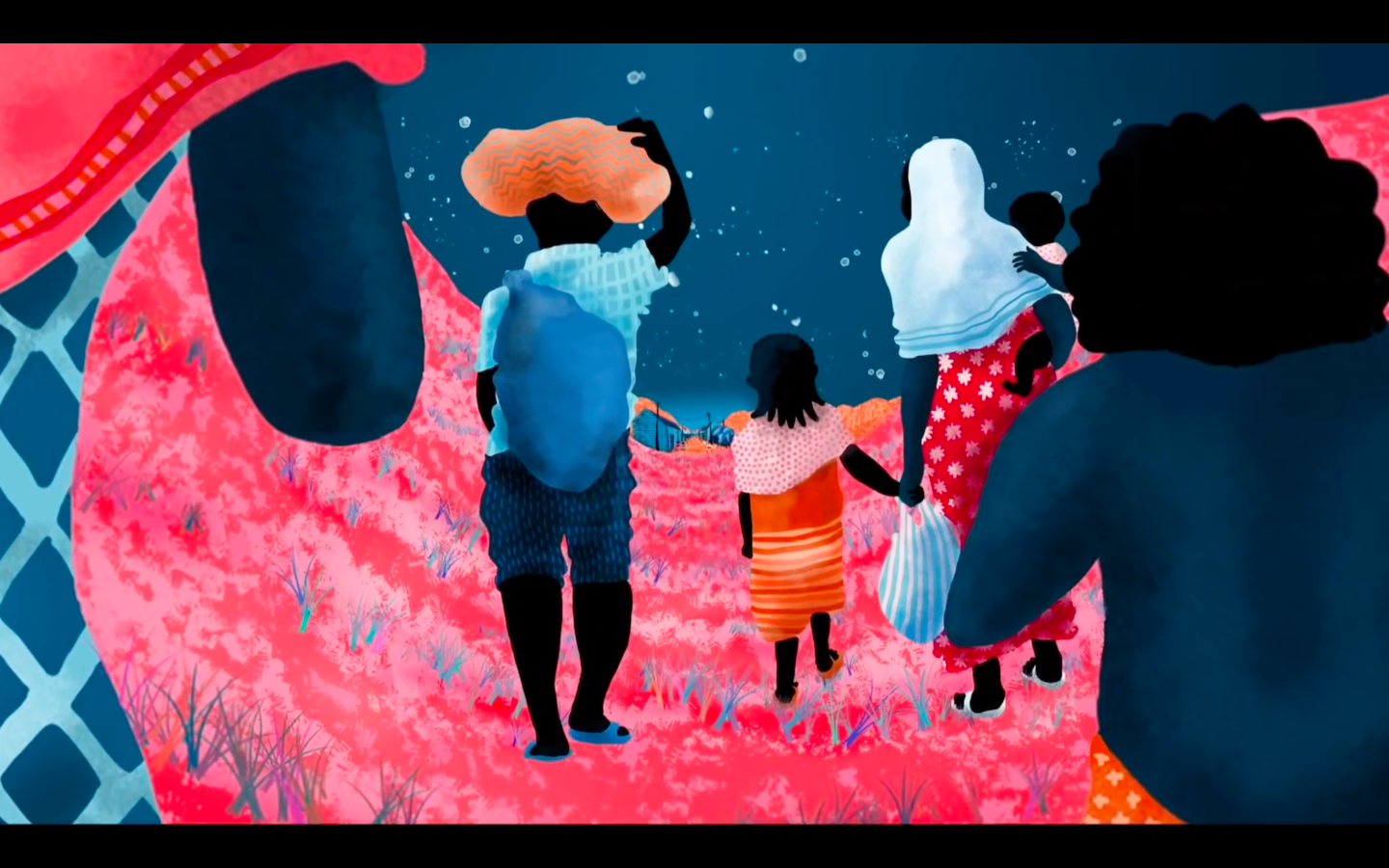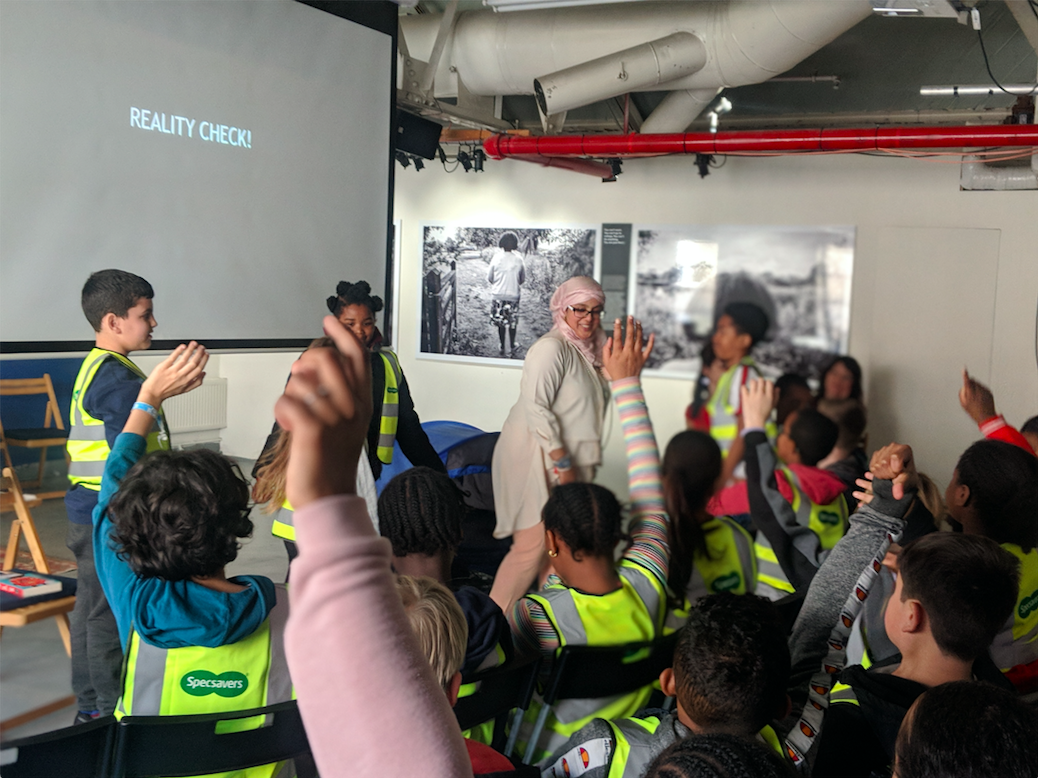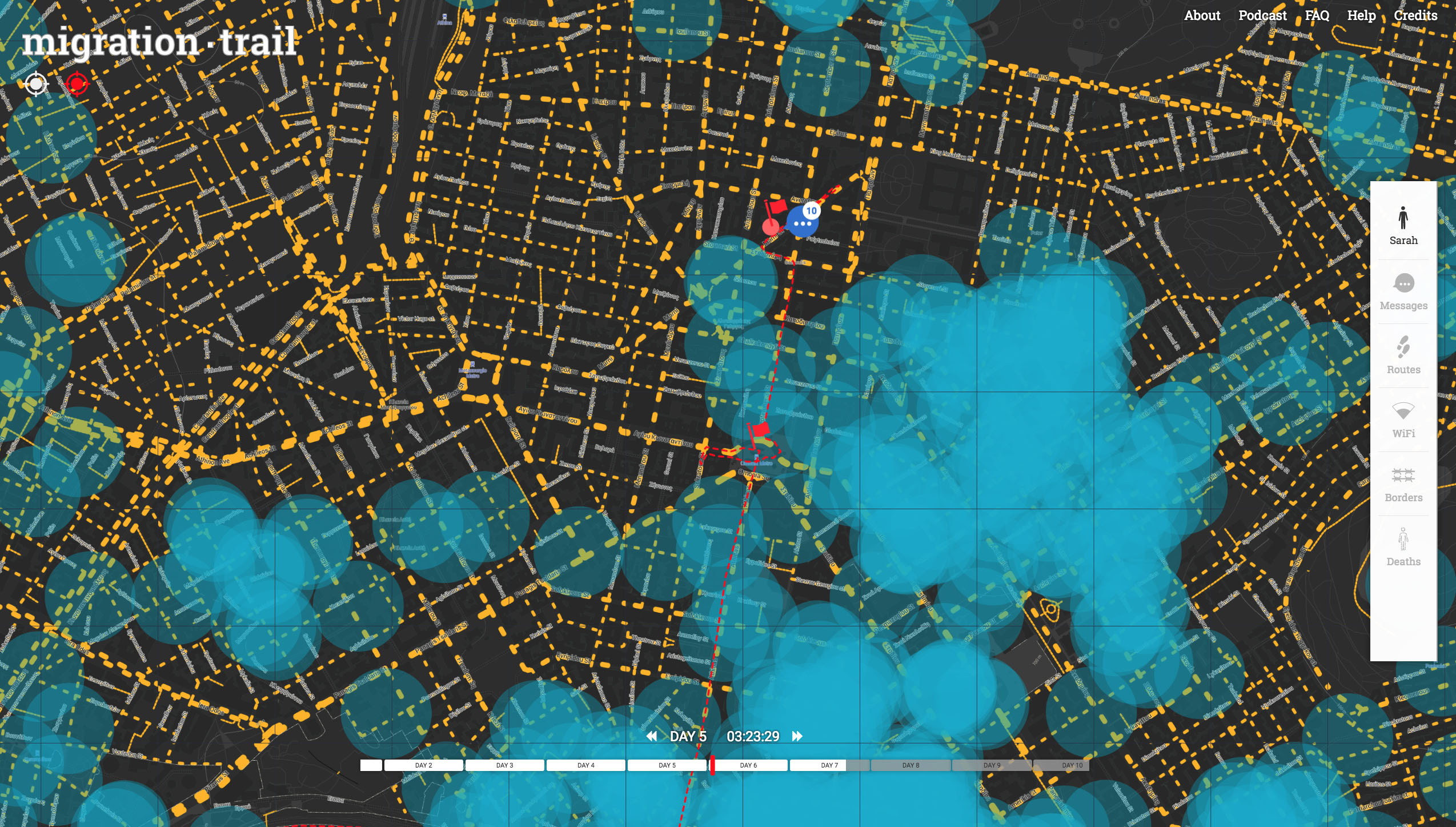
Positive Negatives, founded by Benjamin Dix, brings social and humanitarian issues to light through the production of animations, comics and podcasts. They integrate ethnographic research with illustrations and adapt life-stories into art. Their methodology consists of direct collaboration with the participants, by travelling to meet them face-to-face and interviewing them about their personal experiences. They then spend time immersed in the local culture to further understand the context and to take photographs which will later be given the artists as references. Once the drafted script receives the approval of the participant – who may choose to remain anonymous for safety reasons – the script and references are passed to the artist. The final result is then released as widely as possible, as a way to reach the general public globally and showcase the personal stories behind everyday headlines. One of their most recent works is North Star Fading, the story of four Eritrean refugees who dangerously crossed Ethiopia, Sudan and Libya to reach Europe. The animation is a consistent zoom into the path ahead of them. The illustrations, alongside the audio and voice over, cause the viewer to feel absorbed and hypnotised, tasting a small portion of the overwhelming confusion and terror these testimonies share.


